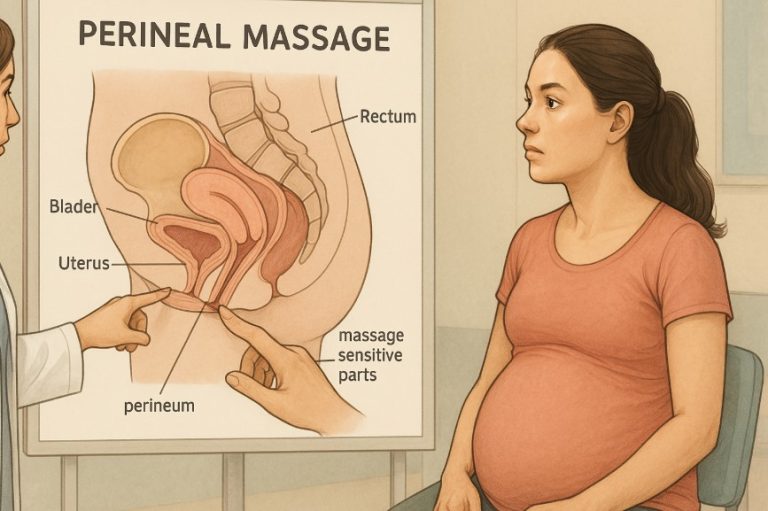Most people have experienced nausea at some point in their lives. It is a queasy, unsettled feeling in the stomach that sometimes leads to vomiting, but not always. While it usually passes within hours or days, for some it becomes a regular occurrence, raising the worrying question: why do I always feel nauseous?
The sensation may be triggered by something as simple as overeating or motion sickness, but in other cases, it can point towards more persistent health conditions such as acid reflux, gallbladder disease, or anxiety disorders.
Understanding the difference between short-term nausea and chronic, long-lasting nausea is the first step in finding relief.
What Is the Difference Between Acute and Chronic Nausea?
Doctors classify nausea as either acute or chronic depending on its duration.
| Type of Nausea | Duration | Typical Causes |
| Acute nausea | Less than one month, often a few days | Viral infections, food poisoning, motion sickness, certain medicines |
| Chronic nausea | More than one month, recurring or constant | Gastrointestinal disorders, GERD, gallbladder problems, hormonal changes, anxiety disorders |
Acute nausea is usually self-limiting and improves within a few days. For example, food poisoning or the norovirus often causes nausea alongside diarrhoea and vomiting but clears once the infection passes.
Chronic nausea, on the other hand, is more complex. It may come and go throughout the day, or it may persist for weeks. Some people find that it worsens at particular times, such as after meals or in the morning.
What Are the Common Causes of Feeling Sick?

Nausea can be caused by a wide variety of factors, ranging from lifestyle triggers to serious medical conditions.
Digestive problems are among the most common. Conditions like acid reflux, indigestion, and peptic ulcers can irritate the stomach lining or oesophagus, producing nausea.
Infections also play a role; viral illnesses such as flu or norovirus often cause sudden nausea, sometimes with fever or diarrhoea.
Hormonal fluctuations are another factor. Many women experience nausea related to menstruation or pregnancy, while thyroid disorders may also trigger it.
Neurological conditions including migraines and vertigo can combine nausea with dizziness, headaches, or sensitivity to light and sound.
Psychological factors are just as significant. Stress and anxiety stimulate the release of stress hormones, which can directly affect digestion and lead to queasiness.
Even common lifestyle choices drinking too much alcohol, smoking, or skipping meals, may leave someone feeling constantly sick.
Can Pregnancy Be the Reason for Constant Nausea?
Pregnancy is one of the most recognised causes of nausea, often referred to as morning sickness. Although it usually improves by the second trimester, some women experience it at different times of day or more severely.
A rare but serious form, called hyperemesis gravidarum, may cause dehydration and weight loss, sometimes requiring hospital care.
Factors such as carrying twins, having a history of motion sickness or migraines, or experiencing morning sickness in a previous pregnancy can make it more likely.
While it can be distressing, pregnancy-related nausea is rarely harmful to the baby and usually resolves with time.
Could Gastro-Oesophageal Reflux Disease (GERD) Cause Persistent Nausea?

GERD is a condition in which stomach acid flows back into the oesophagus due to a weakened valve. Many people associate GERD with heartburn, but it can also cause nausea, coughing, chest discomfort, and even dental erosion from acid exposure.
Other symptoms that may appear include a sour taste in the mouth, difficulty swallowing, or persistent bad breath.
Risk factors include obesity, smoking, and the use of certain medications such as antidepressants and blood pressure drugs. GERD can usually be managed with dietary changes, medication, and lifestyle adjustments.
How Do Conditions Like Pancreatitis, Gastroparesis and Hepatitis Lead to Nausea?
Several conditions affecting the digestive organs can trigger persistent nausea.
Pancreatitis, or inflammation of the pancreas, often causes abdominal pain that radiates to the back, along with nausea and vomiting.
Acute pancreatitis usually lasts a few days, but chronic pancreatitis may persist for years, leading to weight loss and digestive issues. Alcohol use and obesity increase the risk.
Gastroparesis slows down the emptying of food from the stomach due to weak stomach muscles or nerve damage.
It can cause bloating, a feeling of fullness after just a few bites, nausea, and vomiting. It is more common in women and often linked to diabetes or previous abdominal surgery.
Hepatitis, which is inflammation of the liver, can also cause nausea alongside fatigue, jaundice (yellowing of the skin), and abdominal discomfort. Viral hepatitis may be temporary, but in some cases it progresses to chronic liver disease if untreated.
Could Anxiety Disorders Be Responsible for Nausea?

Anxiety does not only affect the mind; it has strong physical effects as well. Stress activates the body’s fight-or-flight response, which alters digestion and blood flow, often leading to nausea.
People with chronic anxiety disorders may therefore experience persistent queasiness alongside symptoms such as a racing heart, restlessness, or difficulty sleeping.
Unlike food poisoning or infections, anxiety-related nausea does not always have a clear physical cause, which makes it harder for individuals to understand.
However, addressing the underlying stress through counselling, relaxation techniques, or medication can significantly reduce nausea.
When Does Nausea Require Urgent Medical Attention?
Most nausea is mild and short-lived, but sometimes it is a symptom of a serious problem. Urgent medical attention should be sought if nausea is accompanied by:
- Severe chest pain, particularly if it spreads to the arms, jaw, or back
- Shortness of breath or dizziness
- Sudden, intense abdominal pain
- Vomit that contains blood or resembles coffee grounds
- Green vomit, which may indicate bile obstruction
- High fever or severe headache
These signs may point to emergencies such as heart attacks, strokes, or gastrointestinal bleeding. In the UK, calling 999 is advised in such situations.
When Should Someone See a GP About Nausea?

While many cases of nausea resolve on their own, persistent or recurring nausea should not be ignored.
You should book a GP appointment if nausea has lasted several days without improvement, if it keeps returning without explanation, or if it interferes with your daily life.
A GP can examine your medical history, run blood tests, or order imaging scans to identify possible causes. In some cases, anti-sickness medication is prescribed, but often lifestyle changes or treatment for the underlying condition are recommended. If you cannot see a GP promptly, NHS 111 can provide advice.
What Can Be Done at Home to Relieve Nausea?
While waiting for nausea to pass, or alongside medical treatment, several practical steps can help.
Opening a window or taking a walk outdoors provides fresh air that often eases the sensation. Drinking cold fluids in small sips can prevent dehydration and settle the stomach.
Ginger and peppermint, whether in teas, biscuits, or capsules, are traditional remedies with some evidence of effectiveness. Eating smaller, lighter meals throughout the day rather than heavy portions can also reduce nausea.
It is equally important to avoid certain habits. Cooking or eating strong-smelling food can make nausea worse, as can eating greasy or fried foods.
Lying down immediately after eating or drinking large amounts with meals may also intensify symptoms.
What Foods and Drinks Are Best for Nausea Relief?

Choosing foods wisely can make a difference when nausea strikes. Bland, easily digestible options such as toast, rice, or plain pasta are often better tolerated.
Cold or chilled foods, including yoghurt, applesauce, or fruit, tend to be less overwhelming than hot, aromatic dishes. Clear fluids like water, diluted juices, and caffeine-free herbal teas can prevent dehydration without upsetting the stomach further.
Caffeinated drinks, alcohol, and spicy foods should be avoided as they often worsen nausea. Many people also find that eating slowly and avoiding very large meals helps them manage symptoms more effectively.
Can Over-the-Counter Medicines Help With Nausea?
Yes. In the UK, pharmacies offer several options for managing nausea. Antacids can be useful for reflux-related nausea, while antihistamines or motion sickness tablets may be effective for travel-related sickness. Rehydration salts can help if nausea is accompanied by vomiting or diarrhoea.
However, these should be used cautiously and only for short-term relief. If nausea continues, professional medical advice is essential to ensure the underlying cause is not overlooked.
How Can Nausea Be Prevented?

Prevention depends on the cause, but certain strategies reduce the likelihood of recurrence. Eating smaller meals more frequently rather than large, heavy ones helps reduce digestive stress. Staying hydrated and limiting alcohol and caffeine are also beneficial.
Stress management plays a key role. Relaxation techniques such as meditation, deep breathing, or yoga can reduce anxiety-induced nausea. For those who notice nausea linked to specific foods or activities, keeping a symptom diary may reveal patterns and triggers to avoid in the future.
Conclusion – How Can Someone Take Control of Persistent Nausea?
Nausea is a common symptom, but constant or recurring nausea should not be dismissed. While acute nausea may result from infections or minor lifestyle triggers, chronic nausea can be linked to digestive disorders, anxiety, or hormonal imbalances.
Practical measures such as adjusting diet, staying hydrated, and reducing stress often bring relief, but when nausea persists, consulting a GP is essential.
By recognising the difference between mild, temporary discomfort and more serious warning signs, individuals can take control of their health and improve their quality of life.
Frequently Asked Questions
Can nausea last for weeks without vomiting?
Yes. Chronic nausea can persist for weeks or months and may not always lead to vomiting.
Is it normal to feel nauseous every morning?
Morning nausea may be caused by low blood sugar, dehydration, or pregnancy. It can also occur with anxiety or poor sleep.
What foods help reduce nausea?
Plain crackers, ginger tea, bananas, and cold yoghurt are often easier on the stomach.
Can stress alone cause nausea?
Yes. Stress hormones can alter digestion, leading to ongoing queasiness in those with anxiety.
When should nausea after eating be a concern?
If nausea occurs frequently after meals, it may suggest reflux, intolerance, or gallbladder problems.
How does dehydration contribute to nausea?
Dehydration lowers blood pressure and disrupts digestion, which can trigger dizziness and nausea.
What treatments might a GP recommend for nausea?
Depending on the diagnosis, a GP may suggest anti-sickness medicines, dietary changes, or referral to a gastroenterologist.






